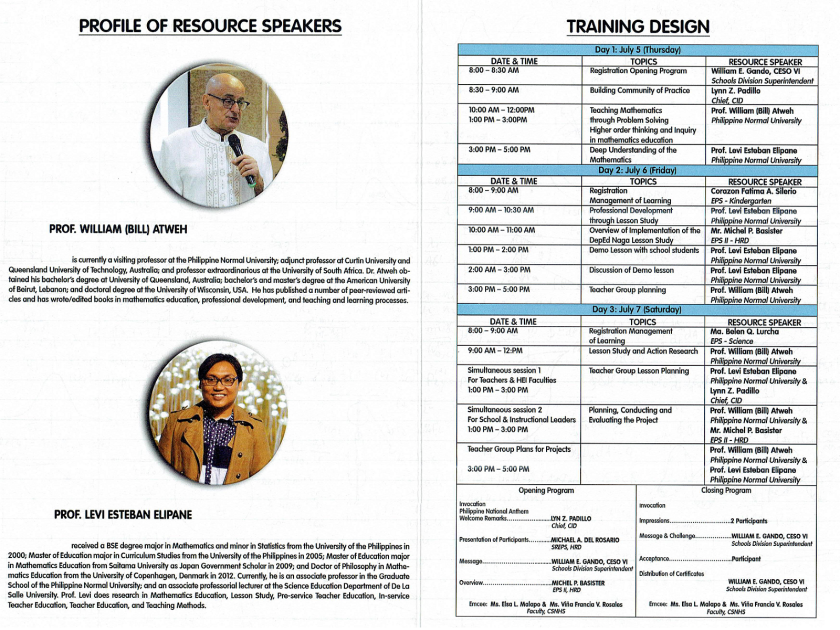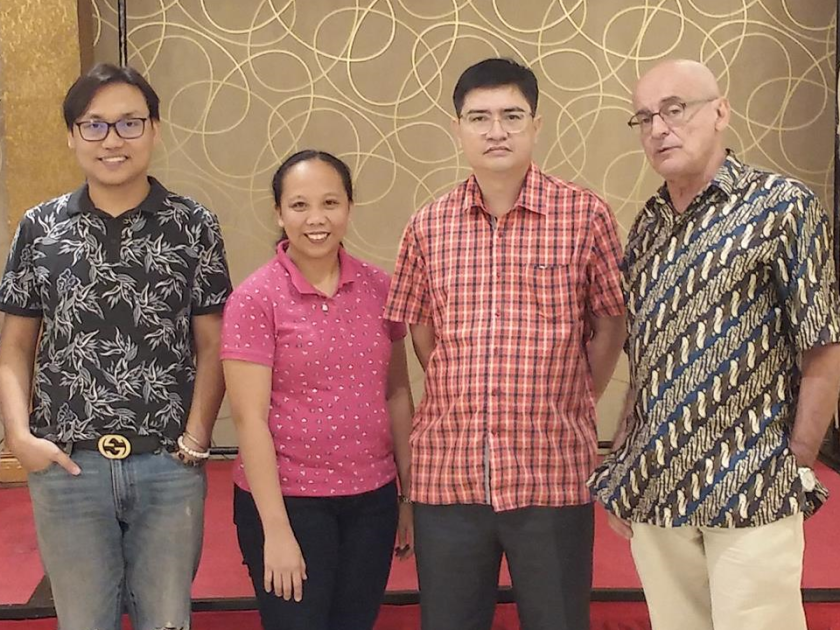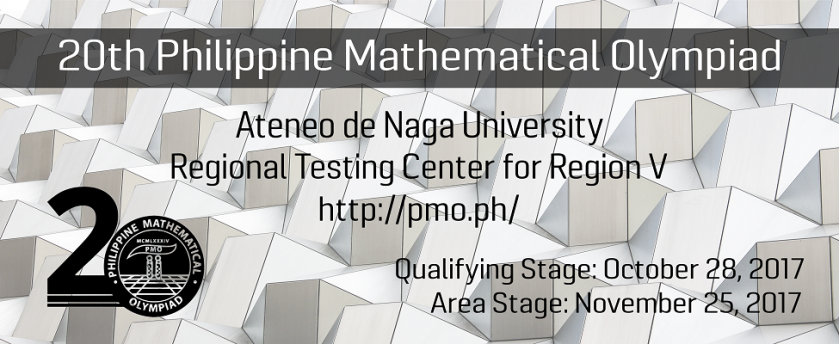
The 19th Philippine Mathematical Olympiad Qualifying Stage for Region V will be held this October 22, 2016, Saturday, at the Ateneo de Naga University, Naga City, Camarines Sur. The exam rooms are at the second and third floors of the Francis C. Dolan, S.J. Hall; registration will be done in the same building.
If you sent your application forms through e-mail, please bring the original application forms with you and submit them to the registration staff on October 22, 2016, if possible.
Participants and coaches must bring identification cards that have ID pictures, preferably those issued by their schools.
Registration starts at 10:00 am. Participants should be in their assigned rooms by 1:45 pm. The exam will start at 2:00 pm and is expected to last 2 hours. Participants who arrive late must take the exam in a room reserved for late-comers (and not their assigned room) so as not to disturb the other participants who started on time. The exam ends at 4:00 pm, even for those who arrived late.
Once the exam has started, participants may not leave the room until it has ended. Participants who need to use the bathroom must do so before the exam starts.
Participants who leave the room before the exam has ended are considered to have finished the exam; they must submit their questionnaires and answer sheets to the proctor before they leave and they are not allowed to return to continue the exam.
The only materials that the students are allowed to have on their desks immediately before the examination are: blue or black ballpoint pen, pencil, eraser, ruler, compass, and protractor. All other items such as notes, books, cellular phones, etc. are not allowed on your desks, but these may be placed in a designated area in the room. Calculators are not allowed.





